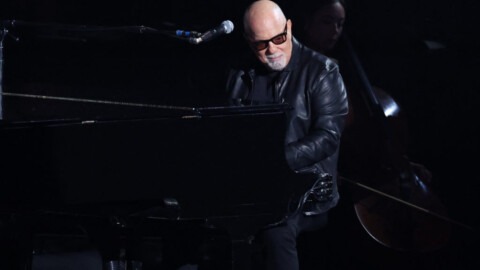Noel Clarke has failed in his attempt to have The Guardian’s defense struck out in his ongoing libel case against the newspaper’s publisher, Guardian News and Media (GNM).
The 49-year-old actor, widely recognized for his roles in Kidulthood and Doctor Who, is suing GNM over a series of investigative articles published in April 2021. These reports featured allegations from 20 women who accused him of misconduct in a professional setting. Clarke has consistently denied any wrongdoing, categorically rejecting all claims of sexual misconduct or criminal behavior.
Appearing in court for the latest hearing, Clarke, dressed in a grey suit and dark-rimmed glasses, faced another setback in his legal battle. GNM is defending the libel claim on the grounds of truth and public interest.
In a pre-trial hearing at the High Court in London, Clarke’s legal team sought to have the defense thrown out, citing serious concerns about the conduct of the journalists involved in the investigation. However, the judge ruled against striking out the defense, allowing the case to proceed to trial, which is expected to take place in March.
Philip Williams, Clarke’s barrister, argued in his written submissions that there was “overwhelming evidence” not just of an attempt to pervert justice but of “actual perversion of the course of justice.”
He alleged that Guardian journalists had engaged in the “deliberate and permanent deletion” of personal correspondence related to the investigation, which he claimed amounted to fabrication. This, he argued, made it “impossible” for GNM to assert that publishing the defamatory articles was truly in the public interest.
Williams further claimed that two freelance journalists involved in the investigation were instructed to erase conversations on the encrypted messaging app Signal. He presented what he described as damning evidence of an attempt to manipulate records, quoting one message that allegedly read:
“Delete this entire thread. I’ll create a new thread which will likely be disclosable in court.” Another message purportedly said: “Can we delete all these threads and use the final thread from now on?” Williams insisted that these messages demonstrated an intentional effort to alter or destroy key evidence.
According to Clarke’s legal team, the alleged destruction of evidence was “widespread and wholesale,” with journalists “frankly admitting” to setting group chats on auto-delete. “The claimant maintains that four other group chats were set to auto-delete. This is admitted by the defendant,” Williams stated.
He also argued that there was a pattern of directing more junior journalists to erase records, while simultaneously crafting a “carefully curated thread” that would support the publisher’s case. “The crux of the strike-out application is whether there had been perversion of the course of justice, or spoliation of evidence which renders a fair trial impossible,” he asserted.
However, GNM’s barrister, Gavin Millar, dismissed these allegations as baseless. In his written submissions, he described Clarke’s strike-out application as “a poor and opportunistic one for which there is no adequate evidential basis.” Millar argued that the motion sought to “smear Guardian journalists and editors without any proper justification” and that there was “no evidence either that any evidence was ‘fabricated.’”
He maintained that none of the claims raised by Clarke’s legal team met the threshold for bad faith or criminal conduct. “None of this ‘evidence’ raises an arguable prima facie case of bad faith, still less criminal conduct against anyone,” Millar told the court.
In addition to contesting allegations of journalistic misconduct, Clarke’s legal team also challenged specific claims made in The Guardian’s reporting. One key piece of evidence submitted by the newspaper alleged that Clarke had sent an unsolicited explicit photo to a woman.
However, Williams pointed out what he called a glaring inconsistency: the photo was dated May 15, 2015, but the woman did not meet Clarke until the following month. “It was therefore chronologically impossible,” Williams argued, accusing The Guardian of ignoring clear discrepancies in its reporting. “They knew at the very least that the dates didn’t match, and we say it’s possible that they ran with it anyway,” he told the court.
Millar, representing The Guardian, pushed back against these assertions, calling it “regrettable” that the hearing was being used to introduce what he described as misleading claims. “The hearing is being used to make these sorts of submissions and allegations,” he stated.
After the hearing, a spokesperson for The Guardian issued a statement expressing confidence in their reporting. “Today, the judge rejected Noel Clarke’s application to strike out our defense,” the statement read.
The spokesperson went on to defend the integrity of the newspaper’s journalism. “Lawyers for The Guardian told the court there is not one scintilla of evidence that journalists ‘fabricated’ evidence—a very serious claim made to launder into the public domain allegations that couldn’t have been made outside court,” they said.
The newspaper reaffirmed its commitment to its original reporting, emphasizing that the 2021 articles were based on “the accounts of 20 brave women.” Following the initial publication, additional women came forward with similar allegations. “At trial, 32 witnesses are set to testify against Mr. Clarke under oath. We look forward to a judge hearing the evidence,” the spokesperson added.
Clarke’s legal troubles have had significant repercussions on his career. After the allegations surfaced in 2021, BAFTA suspended his membership, and several television networks cut ties with him.
His once-thriving career took a sharp downturn, with numerous projects being shelved in the wake of the controversy. Despite this, Clarke has continued to maintain his innocence, insisting that he has been the victim of false accusations.
The case has also reignited discussions about media accountability and the ethical responsibilities of investigative journalism. While Clarke’s legal team argues that The Guardian engaged in misconduct to justify its reporting, the newspaper has stood firm, maintaining that its investigation was conducted in good faith and served the public interest. The upcoming trial in March is expected to be a pivotal moment, as both sides present their evidence before a judge.
Meanwhile, Scotland Yard previously reviewed the allegations against Clarke but ultimately decided not to pursue a criminal investigation. In a statement issued in March 2022, the Metropolitan Police said that after a “thorough assessment by specialist detectives,” they concluded that the information received did not meet the threshold for criminal charges. However, the ongoing libel case means that Clarke’s fight to clear his name is far from over.








